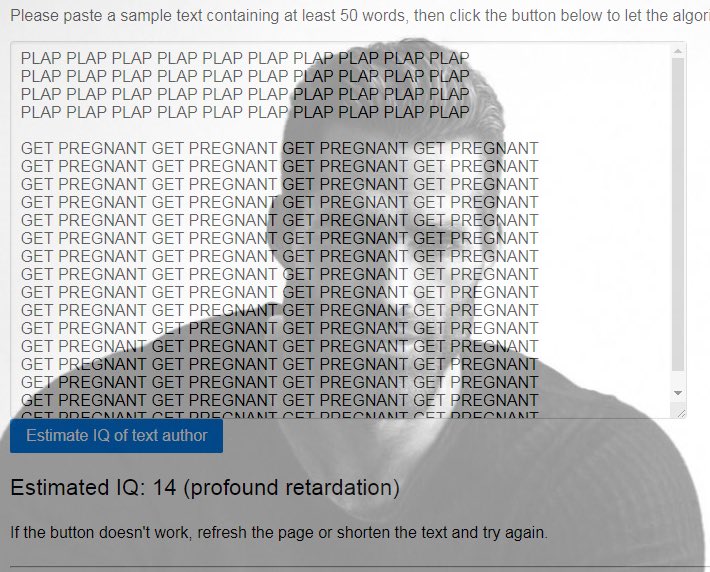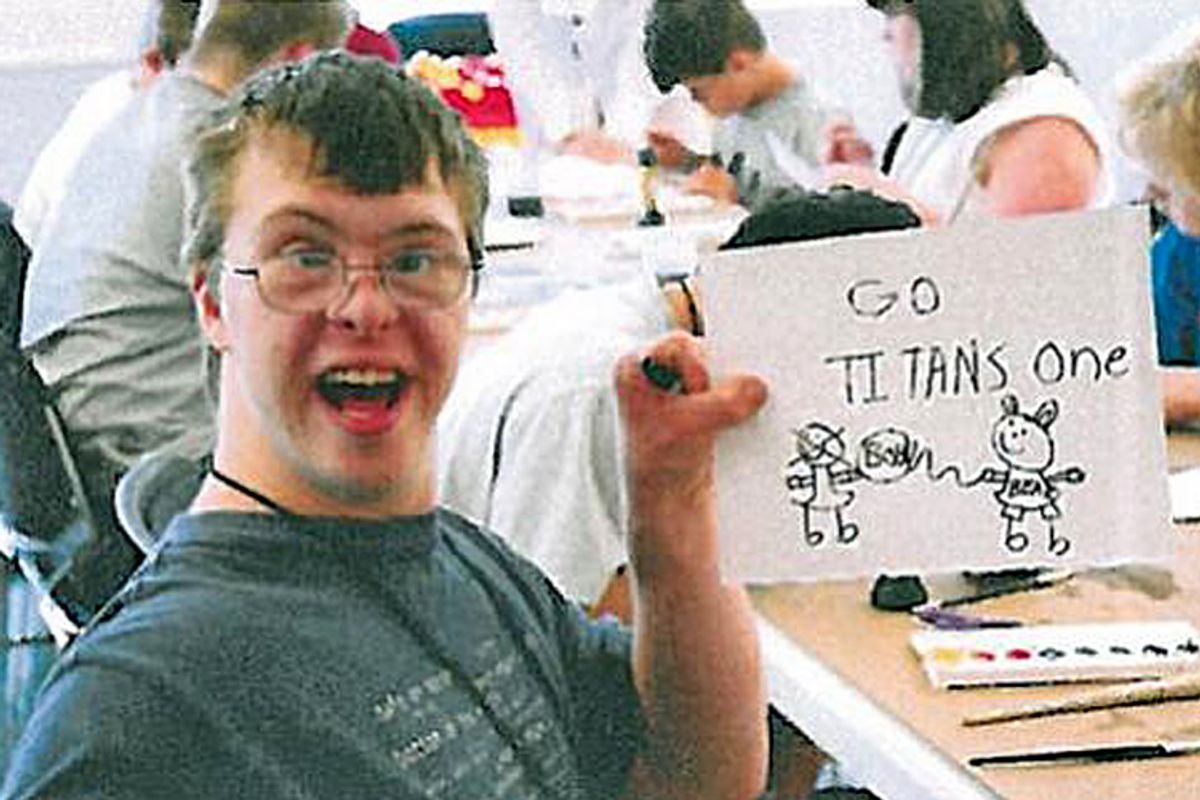When we hear phrases like "bait or mental retardation guy," it's essential to approach the topic with sensitivity and a deeper understanding. This term often refers to individuals who may exhibit behaviors that seem unusual or misunderstood, leading to societal misconceptions. However, it's crucial to remember that everyone deserves respect and empathy, regardless of their circumstances. By exploring this topic further, we can break down stereotypes and promote inclusivity.
Understanding mental health and developmental conditions is vital in fostering a more compassionate society. The phrase "bait or mental retardation guy" might seem harsh or dismissive, but it can also serve as a starting point for discussions about mental health awareness, stigma, and support systems. This article aims to shed light on the complexities surrounding such terms while promoting understanding and respect.
Our goal is to provide a comprehensive guide that explores the nuances of mental health, developmental disorders, and societal perceptions. By the end of this article, you will have a clearer understanding of how to approach this topic with empathy and knowledge, empowering you to contribute positively to conversations about mental health and inclusion.
Read also:Frozen Accounts Neighbors Credit Union What You Need To Know
What Does "Bait or Mental Retardation Guy" Really Mean?
The phrase "bait or mental retardation guy" is often used in casual or informal settings to describe someone whose behavior might seem out of the ordinary. However, it's important to recognize that this term can perpetuate harmful stereotypes and stigma. In reality, individuals with developmental disorders or mental health challenges deserve understanding, support, and respect.
Let's break down the meaning behind this phrase:
- Bait: Refers to actions or behaviors that might seem unusual or exaggerated, often leading to misunderstandings.
- Mental Retardation: A term that has largely been replaced by more respectful language, such as "intellectual disability." It refers to a condition characterized by limitations in cognitive functioning and adaptive behaviors.
- Guy: A casual term used to describe a person, often in a dismissive or oversimplified manner.
By understanding the origins and implications of this phrase, we can move toward more respectful and inclusive language.
The Importance of Using Respectful Language
Language plays a crucial role in shaping perceptions and attitudes. When discussing topics related to mental health and developmental disabilities, it's essential to use language that promotes respect and understanding. Terms like "mental retardation" have been replaced by more appropriate alternatives, such as "intellectual disability," to reflect a more inclusive and compassionate approach.
Here are some key reasons why respectful language matters:
- It reduces stigma and promotes acceptance.
- It fosters a more inclusive environment for individuals with disabilities.
- It encourages open and honest conversations about mental health.
How to Use Respectful Language in Everyday Conversations
Adopting respectful language is a simple yet powerful way to make a positive impact. Here are some tips:
Read also:Federal Court Judge Nicholas Garaufis A Comprehensive Overview
- Avoid using outdated or derogatory terms.
- Focus on the person rather than their condition (e.g., "a person with an intellectual disability" instead of "a mentally retarded person").
- Listen to the preferences of individuals with disabilities and respect their chosen terminology.
Understanding Intellectual Disabilities
Intellectual disabilities, once referred to as "mental retardation," are characterized by limitations in cognitive functioning and adaptive behaviors. These disabilities can affect a person's ability to learn, communicate, and perform daily tasks. However, it's important to recognize that individuals with intellectual disabilities have unique strengths and talents that should be celebrated.
Common Types of Intellectual Disabilities
There are several types of intellectual disabilities, each with its own set of characteristics and challenges. Some of the most common types include:
- Down Syndrome: A genetic condition caused by an extra copy of chromosome 21.
- Fetal Alcohol Syndrome: A condition caused by prenatal exposure to alcohol.
- Autism Spectrum Disorder: A developmental disorder that affects communication and social interaction.
Understanding these conditions can help us appreciate the diversity of human experiences and promote inclusivity.
Social Perceptions and Stereotypes
Social perceptions and stereotypes can have a profound impact on how individuals with intellectual disabilities are treated. Unfortunately, phrases like "bait or mental retardation guy" contribute to negative stereotypes that can perpetuate stigma and discrimination. It's essential to challenge these perceptions and promote a more accurate understanding of intellectual disabilities.
Challenging Negative Stereotypes
Here are some ways to challenge negative stereotypes:
- Educate yourself and others about intellectual disabilities.
- Share positive stories and examples of individuals with disabilities thriving in various aspects of life.
- Advocate for inclusive policies and practices in schools, workplaces, and communities.
The Role of Mental Health Awareness
Mental health awareness plays a critical role in promoting understanding and support for individuals with intellectual disabilities. Many individuals with intellectual disabilities also experience mental health challenges, such as anxiety, depression, or behavioral disorders. Recognizing and addressing these challenges is essential for ensuring their overall well-being.
Common Mental Health Challenges in Individuals with Intellectual Disabilities
Some of the most common mental health challenges faced by individuals with intellectual disabilities include:
- Anxiety disorders
- Depression
- Attention-deficit/hyperactivity disorder (ADHD)
By increasing awareness and providing appropriate support, we can help individuals with intellectual disabilities lead fulfilling and meaningful lives.
Support Systems and Resources
Having access to appropriate support systems and resources is crucial for individuals with intellectual disabilities and their families. These resources can include specialized education, therapy, and community programs designed to promote independence and inclusion.
Key Resources for Individuals with Intellectual Disabilities
Here are some key resources that can make a difference:
- Special education programs
- Therapeutic services, such as occupational therapy and speech therapy
- Community support groups
By connecting individuals with these resources, we can help them achieve their full potential.
Breaking Down Barriers to Inclusion
Inclusion is essential for creating a society where everyone feels valued and respected. Breaking down barriers to inclusion involves addressing systemic issues, promoting awareness, and fostering empathy. By working together, we can create a more inclusive world for individuals with intellectual disabilities.
Steps Toward Greater Inclusion
Here are some steps we can take to promote inclusion:
- Advocate for policies that support inclusion in education, employment, and community life.
- Encourage businesses and organizations to hire individuals with disabilities.
- Support initiatives that promote accessibility and accommodations for individuals with disabilities.
The Impact of Stigma on Mental Health
Stigma can have a significant impact on the mental health of individuals with intellectual disabilities. Negative attitudes and stereotypes can lead to feelings of isolation, low self-esteem, and anxiety. Addressing stigma is crucial for promoting mental health and well-being in this population.
Ways to Reduce Stigma
Here are some ways to reduce stigma:
- Engage in open and honest conversations about mental health and disabilities.
- Challenge negative attitudes and stereotypes when you encounter them.
- Support organizations and initiatives that promote mental health awareness and inclusion.
Conclusion: Promoting Understanding and Inclusion
In conclusion, understanding the phrase "bait or mental retardation guy" requires a deeper exploration of intellectual disabilities, mental health, and societal perceptions. By using respectful language, challenging stereotypes, and promoting inclusion, we can create a more compassionate and supportive world for individuals with intellectual disabilities.
We invite you to join the conversation by sharing your thoughts and experiences in the comments section below. Together, we can make a difference in promoting understanding, respect, and inclusion for all individuals.
Table of Contents
- What Does "Bait or Mental Retardation Guy" Really Mean?
- The Importance of Using Respectful Language
- Understanding Intellectual Disabilities
- Social Perceptions and Stereotypes
- The Role of Mental Health Awareness
- Support Systems and Resources
- Breaking Down Barriers to Inclusion
- The Impact of Stigma on Mental Health
- Conclusion: Promoting Understanding and Inclusion

